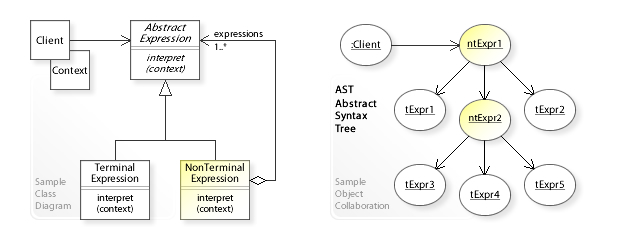|
Compilation Error
Compilation error refers to a state when a compiler fails to compile a piece of computer program source code, either due to errors in the code, or, more unusually, due to errors in the compiler itself. A compilation error message often helps programmers debugging the source code. Although the definitions of compilation and interpretation can be vague, generally compilation errors only refer to static compilation and not dynamic compilation. However, dynamic compilation can still technically have compilation errors, although many programmers and sources may identify them as run-time errors. Most just-in-time compilers, such as the Javascript V8 engine, ambiguously refer to compilation errors as syntax errors since they check for them at run time. Examples Common C++ compilation errors * Undeclared identifier, e.g.: doy.cpp: In function `int main()': doy.cpp:25: `DayOfYear' undeclared (first use this function) This means that the variable "DayOfYear" is trying to be used befo ... [...More Info...] [...Related Items...] OR: [Wikipedia] [Google] [Baidu] |
Compiler
In computing, a compiler is a computer program that translates computer code written in one programming language (the ''source'' language) into another language (the ''target'' language). The name "compiler" is primarily used for programs that translate source code from a high-level programming language to a low-level programming language (e.g. assembly language, object code, or machine code) to create an executable program. Compilers: Principles, Techniques, and Tools by Alfred V. Aho, Ravi Sethi, Jeffrey D. Ullman - Second Edition, 2007 There are many different types of compilers which produce output in different useful forms. A '' cross-compiler'' produces code for a different CPU or operating system than the one on which the cross-compiler itself runs. A '' bootstrap compiler'' is often a temporary compiler, used for compiling a more permanent or better optimised compiler for a language. Related software include, a program that translates from a low-level language ... [...More Info...] [...Related Items...] OR: [Wikipedia] [Google] [Baidu] |
Computer Program
A computer program is a sequence or set of instructions in a programming language for a computer to execute. Computer programs are one component of software, which also includes documentation and other intangible components. A computer program in its human-readable form is called source code. Source code needs another computer program to execute because computers can only execute their native machine instructions. Therefore, source code may be translated to machine instructions using the language's compiler. (Assembly language programs are translated using an assembler.) The resulting file is called an executable. Alternatively, source code may execute within the language's interpreter. If the executable is requested for execution, then the operating system loads it into memory and starts a process. The central processing unit will soon switch to this process so it can fetch, decode, and then execute each machine instruction. If the source code is requested for e ... [...More Info...] [...Related Items...] OR: [Wikipedia] [Google] [Baidu] |
Source Code
In computing, source code, or simply code, is any collection of code, with or without comment (computer programming), comments, written using a human-readable programming language, usually as plain text. The source code of a Computer program, program is specially designed to facilitate the work of computer programmers, who specify the actions to be performed by a computer mostly by writing source code. The source code is often transformed by an assembler (computing), assembler or compiler into Binary number, binary machine code that can be executed by the computer. The machine code is then available for execution (computing), execution at a later time. Most application software is distributed in a form that includes only executable files. If the source code were included it would be useful to a user (computing), user, programmer or a system administrator, any of whom might wish to study or modify the program. Alternatively, depending on the technology being used, source code m ... [...More Info...] [...Related Items...] OR: [Wikipedia] [Google] [Baidu] |
Computer Programmer
A computer programmer, sometimes referred to as a software developer, a software engineer, a programmer or a coder, is a person who creates computer programs — often for larger computer software. A programmer is someone who writes/creates computer software or applications by providing a specific programming language to the computer. Most programmers have extensive computing and coding experience in many varieties of programming languages and platforms, such as Structured Query Language (SQL), Perl, Extensible Markup Language (XML), PHP, HTML, C, C++ and Java. A programmer's most often-used computer language (e.g., Assembly, C, C++, C#, JavaScript, Lisp, Python, Java, etc.) may be prefixed to the aforementioned terms. Some who work with web programming languages may also prefix their titles with ''web''. Terminology There is no industry-wide standard terminology, so "programmer" and " software engineer" might refer to the same role at different companies. Most typica ... [...More Info...] [...Related Items...] OR: [Wikipedia] [Google] [Baidu] |
Debugging
In computer programming and software development, debugging is the process of finding and resolving ''bugs'' (defects or problems that prevent correct operation) within computer programs, software, or systems. Debugging tactics can involve interactive debugging, control flow analysis, unit testing, integration testing, log file analysis, monitoring at the application or system level, memory dumps, and profiling. Many programming languages and software development tools also offer programs to aid in debugging, known as '' debuggers''. Etymology The terms "bug" and "debugging" are popularly attributed to Admiral Grace Hopper in the 1940s. While she was working on a Mark II computer at Harvard University, her associates discovered a moth stuck in a relay and thereby impeding operation, whereupon she remarked that they were "debugging" the system. However, the term "bug", in the sense of "technical error", dates back at least to 1878 and Thomas Edison who describes the ... [...More Info...] [...Related Items...] OR: [Wikipedia] [Google] [Baidu] |
Interpreter (computing)
In computer science, an interpreter is a computer program that directly execution (computers), executes instructions written in a Programming language, programming or scripting language, without requiring them previously to have been Compiler, compiled into a machine language program. An interpreter generally uses one of the following strategies for program execution: # Parse the source code and perform its behavior directly; # Translator (computing), Translate source code into some efficient intermediate representation or object code and immediately execute that; # Explicitly execute stored precompiled bytecode made by a compiler and matched with the interpreter Virtual Machine. Early versions of Lisp programming language and BASIC interpreter, minicomputer and microcomputer BASIC dialects would be examples of the first type. Perl, Raku (programming language), Raku, Python (programming language), Python, MATLAB, and Ruby (programming language), Ruby are examples of the second, w ... [...More Info...] [...Related Items...] OR: [Wikipedia] [Google] [Baidu] |
Dynamic Compilation
Dynamic compilation is a process used by some programming language implementations to gain performance during program execution. Although the technique originated in Smalltalk,Peter L. Deutsch and Alan Schiffman. "Efficient Implementation of the Smalltalk-80 System", 11th Annual Symposium on Principles of Programming Languages, Jan 1984, pp. 297-302 the best-known language that uses this technique is Java. Since the machine code emitted by a dynamic compiler is constructed and optimized at program runtime, the use of dynamic compilation enables optimizations for efficiency not available to statically-compiled programs (i.e. those compiled by a so-called "batch compiler", as written below) except through code duplication or metaprogramming. Runtime environments using dynamic compilation typically have programs run slowly for the first few minutes, and then after that, most of the compilation and recompilation is done and it runs quickly. Due to this initial performance lag, dynamic ... [...More Info...] [...Related Items...] OR: [Wikipedia] [Google] [Baidu] |
Runtime Error Detection
Runtime error detection is a software verification method that analyzes a software application as it executes and reports defects that are detected during that execution. It can be applied during unit testing, component testing, integration testing, system testing (automated/scripted or manual), or penetration testing. Runtime error detection can identify defects that manifest themselves only at runtime (for example, file overwrites) and zeroing in on the root causes of the application crashing, running slowly, or behaving unpredictably. Defects commonly detected by runtime error detection include: * Race conditions * Exceptions * Resource leaks * Memory leaks * Security attack vulnerabilities (e.g., SQL injection) * Null pointers * Uninitialized memory * Buffer overflows Runtime error detection tools can only detect errors in the executed control flow of the application. [...More Info...] [...Related Items...] OR: [Wikipedia] [Google] [Baidu] |
Just In Time Compiler
In computing, just-in-time (JIT) compilation (also dynamic translation or run-time compilations) is a way of executing computer code that involves compilation during execution of a program (at run time) rather than before execution. This may consist of source code translation but is more commonly bytecode translation to machine code, which is then executed directly. A system implementing a JIT compiler typically continuously analyses the code being executed and identifies parts of the code where the speedup gained from compilation or recompilation would outweigh the overhead of compiling that code. JIT compilation is a combination of the two traditional approaches to translation to machine code—ahead-of-time compilation (AOT), and interpretation—and combines some advantages and drawbacks of both. Roughly, JIT compilation combines the speed of compiled code with the flexibility of interpretation, with the overhead of an interpreter and the additional overhead of compi ... [...More Info...] [...Related Items...] OR: [Wikipedia] [Google] [Baidu] |
Chrome V8
V8 is a free and open-source JavaScript engine developed by the Chromium Project for Google Chrome and Chromium web browsers. The project’s creator is Lars Bak. The first version of the V8 engine was released at the same time as the first version of Chrome: 2 September 2008. It has also been used on the server side, for example in Couchbase and Node.js. History The V8 assembler is based on the Strongtalk assembler. On 7 December 2010, a new compiling infrastructure named Crankshaft was released, with speed improvements. In version 41 of Chrome in 2015, project TurboFan was added to provide more performance improvements with previously challenging workloads such as asm.js. Much of V8's development is strongly inspired by the Java HotSpot Virtual Machine developed by Sun Microsystems, with the newer execution pipelines being very similar to those of HotSpot's. In 2016, the Ignition interpreter was added to V8 with the design goal of reducing the memory usage on small memory ... [...More Info...] [...Related Items...] OR: [Wikipedia] [Google] [Baidu] |
Run Time (program Lifecycle Phase)
In computer science, runtime, run time, or execution time is the final phase of a computer programs life cycle, in which the code is being executed on the computer's central processing unit (CPU) as machine code. In other words, "runtime" is the running phase of a program. A runtime error is detected after or during the execution (running state) of a program, whereas a compile-time error is detected by the compiler before the program is ever executed. Type checking, register allocation, code generation, and code optimization are typically done at compile time, but may be done at runtime depending on the particular language and compiler. Many other runtime errors exist and are handled differently by different programming languages, such as division by zero errors, domain errors, array subscript out of bounds errors, arithmetic underflow errors, several types of underflow and overflow errors, and many other runtime errors generally considered as software bugs which may or m ... [...More Info...] [...Related Items...] OR: [Wikipedia] [Google] [Baidu] |



